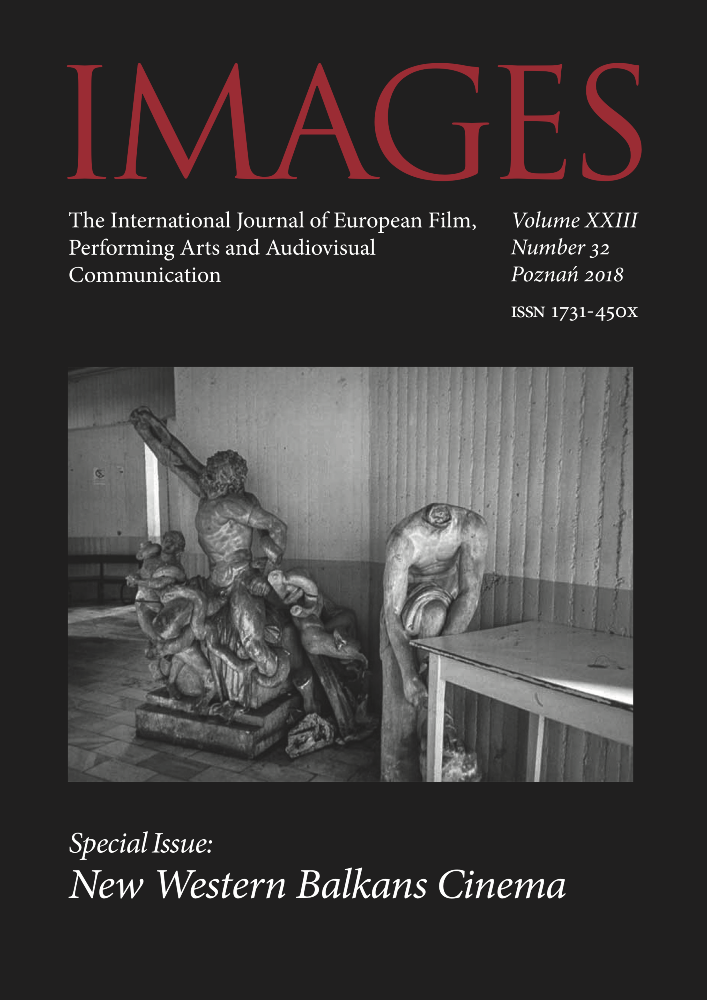Abstrakt
The aim of this paper is to analyse the shift of the representational and narrative paradigms of Holocaust memory in the Balkan films that belong to two genres – of melodrama and historicalfiction. The hybrid format positons the Holocaust (hi)stories – already caught between forgetting and remembrance – on the unstable ground between trauma and nostalgia; between history and memory; or facts and fiction. The “regained visibility of the Holocaust grant us access” to Balkan past and present and oblige us to investigate the convergence of the history and the memory into Holocaust master narrative of the Holocaust.
“Bringing the dark past to light” in cinema has manifold effect. First, the Balkan wave of Holocaustfilms, with its mixed generic performances, offers new answers to the traditional issues of, both, the ethics of memory and the ethics of representation. Second, the analysis of five films reveals that the trauma from the past – resisting the closure – has the potential to powerfully resonate in the present day political crises. Re-dressing the trauma of the past, the films present the future violence while fulfilling “the Holocaust dictum ‘never forget’”. Eventually, new representational paradigm gives consistency to the Balkan (hi)stories of the past and coherence to the identity in the present.
Bibliografia
Assman A., Memory, individual and collective, in: The Oxford Handbook of Con- textual Political Analysis, eds. R.E. Goodin, Ch. Tilly Ch, Oxford 2006.
Assmann I., Religion and Cultural Memory, Stanford 2006.
Assmann I., Czaplika J., Collective memory and cultural identity, new German critique, “Cultural History/Cultural Studies” 1995, no. 65.
Barenboim D., Said E., Parallels and Paradoxes: Explorations in Music and Society, New York 2004.
Baron A., The Shoah on the Screen: Representing Crimes Against Humanity, Strasbourg 2006, vol. 1.
Boswell M., Beyond autobiography: hybrid testimony and the art of witness, in: The Future of Testimony: Interdisciplinary Perspectives on Witnessing, eds. A. Rowland, J. Kilby, New York 2004.
Daković N., Balkan kao (filmski) žanr: Slika, tekst, nacija, Beograd 2008.
Daković N., Images from the fringes: Balkanism in world cinema, “Spaces of Identity” 2001, vol. 1, no. 1, <http://www.arts.ualberta.ca/CCAuCES/spacesofidentity/ start.html> [accessed: 12.12.2017].
Daković N., Studije filma: ogledi o filmskim tekstovima sećanja. Beograd 2014.
Dalton S., ‘Bulgarian rhapsody’: Film review, “The Hollywood Reporter” 2014, De- cember 23, <https://www.hollywoodreporter.com/review/bulgarian-rhapsody-film-review-759977> [accessed: 12.12.2017].
Fitzgerald S., This Side of Paradise, New York 1999.
Frank S., The visual sites of memory: the Holocaust from the screen to cultural memory, in: Zbornik radova sa naučnog skupa Menadžment dramskih umetnosti i medija − izazovi XXI veka, Beograd 2014.
Gledhill C. (ed.), Home is Where the Heart is. Studies in Melodrama and the Woman’s Film, London 1987.
Halbwachs M., The Collective Memory, New York 1980.
Hall S., Whose heritage? Un-settling ‘the heritage’, re-imagining the post-nation, in: The Politics of Heritage: the Legacies of ‘Race’, eds. J. Littler, R. Naidoo, London 2005.
Hodgkin K., S. Radstone, Introduction: contested pasts, in: Contested Pasts: The Politics of Memory, eds. K. Hodgkin, S. Radstone, London 2003.
Insdorf A., Indelible Shadows Film and the Holocaust, Cambridge 2003.
Iordanova D., Cinema of Flames: Balkan Film, Culture, and the Media, London 2001 Lafe A., Logika filma, Beograd 1971.
Levy D., Sznaider N., Memory unbound: The Holocaust and the formation of cosmopolitan memory, “European Journal of Social Theory” 2002, vol. 5 (1).
Lorenz C., Unstuck in time. or: the sudden presence of the past, in: Performing the Past: Memory, History, and Identity in Modern Europe, eds. K. Tilmans, F. van Vree, J. Winter, Amsterdam 2010.
Lowenthal D., The Heritage Crusade and the Spoils of History, Cambridge 1998.
Mandel N., Rethinking ‘After Auschwitz’: Against a Rhetoric of the Unspeakable in Holocaust Writing, “Boundary” 2001, vol. 28, no. 2.
Margalit A., The Ethics of Memory, Harvard 2002.
Nora P., Between Memory and History: Les lieux de mémoire, “Representations” 1989, Special Issue: Memory and Counter-memory, no. 26, <http://www.jstor.org/stable/2928520?seq=1#page_scan_tab_contents> [accessed on: 12.12.2017].
Ricoeur P., Memory, History, Forgetting, Chicago 2009.
Rosenfeld A.H., Americanization of the Holocaust, “Commentary” 1995, 99, no. 6.
Rosenfeld A.H., The End of the Holocaust, Bloomington 2011.
Saxton L., Haunted Images: Film, Ethics, Testimony and the Holocaust. London-New York 2008.
Schmahl S. et al., The Council of Europe: Its Law and Policies, London 2017.
Todorova M., Imagining the Balkans, New York 1997.
Wolff L., Inventing Eastern Europe: The Map of Civilization on the Mind of the Enlightenment, Stanford 1994.
Zombory M., The Birth of the memory to communism: Memorial museums in Europe, Nationalities paper: “The Journal of Nationalism and Ethnicity” 2017, vol. 45, no 6.
Licencja

Utwór dostępny jest na licencji Creative Commons Uznanie autorstwa – Użycie niekomercyjne – Bez utworów zależnych 4.0 Międzynarodowe.
